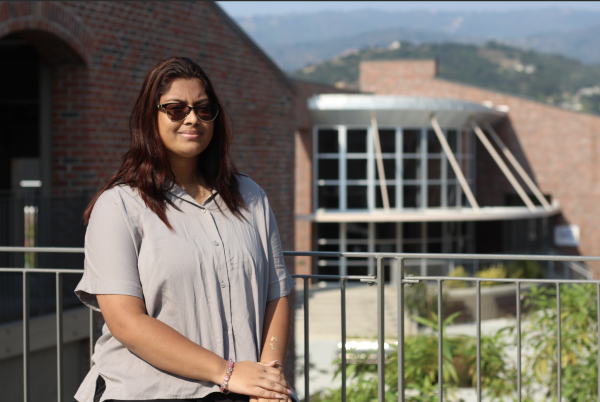Stranger danger
Discussing the safety of making friends over the internet
Photo illustration | Mikaylah Du
An anonymous digitalized person looks at the screen.
June 1, 2023
Content Warning: This story contains mentions of blackmail and death threats.
After a couple of months of chatting with an online friend, sophomore Jerry Wang’s friendship took a dark turn. Though he had believed they were close, the friend he met on a Discord server — seemingly out of nowhere — started manipulating and blackmailing him. At one point, the stranger’s friend began sending him death threats as well, and Wang cut off contact, left shaken by the experience. This encounter taught Wang to be wary of the people he meets online, and he now believes that the internet is not as safe as many believe it is.
According to a study by the Center for Cyber Safety and Education, nearly 40% of teenagers have talked to strangers online. The ability to establish large communities online, such as Discord servers, provides an easy way to connect people all over the world with others who share common interests, allowing long-distance friendships to become increasingly common. MVHS Alum ’22 Shivani Madhan has also utilized online platforms to talk to strangers, seeing it as a liberating way to speak due to the lack of face-to-face interactions.
“I feel like the internet is a place where people can portray themselves a certain way because people don’t know [anything] about what they do in real life,” Madhan said. “And if things don’t go well, it’s extremely easy for you to stop talking to people because they’re a stranger, right? They have no other presence in your life besides how you’re communicating with them on the internet.”
However, MVHS school-based therapist Akiko Chung cautions against meeting with strangers, and finds herself concerned about student safety when they tell her that they’ve been conversing with others online. Throughout her tenure as a therapist, she’s met multiple teenagers who were left “traumatized” after they decided to meet up in-person with their online friend.
Most notably, she remembers an incident with a teenager who left home to meet up with an online friend whom their parents didn’t know about. Ultimately, their parents filed a missing person report and called the law enforcement after realizing that their child was not at home. While the child was eventually found, the event left everyone involved frightened. Many students have also reported to Chung that online strangers have trauma-dumped on them to vent frustrations. The end result was not a fun interaction with an online friend, but rather a feeling of discomfort.
“My concern is that once you develop the relationship, even though you are cautious, you’d [be unable] to keep a relationship online,” Chung said. “For example, if you tell yourself you[‘re] not going to see this person [in the beginning], once you develop a really close relationship that leads to you [thinking that you] can trust this person, those thoughts can change.”
Although acknowledging that talking over the internet may be dangerous, Madhan sees a benefit in it as well, as the internet provides a useful way to relate to others. When she was younger, talking to people from all over the world who shared her interests brought her happiness, as it was difficult to find people to relate to in real life. Despite this, she recognizes that talking to strangers at a young age is dangerous.
“Reflecting on it now, I don’t believe that I should have been given access to the internet and been able to talk to people back then because when you’re so young, you don’t know a lot of things about privacy and the way that other people on the internet operate,” Madhan said.
Wang agrees with Madhan, acknowledging that he was not as safe as he believed, and that he could have done a better job protecting private information such as his location and his family’s details. His experiences online have taught him that the internet is not as safe as he once believed — anyone can be on there, and so it is imperative to keep in mind one’s actions and the friends they make, because anything is possible.
However, despite his experiences online, Wang believes that making friends on the internet is not inherently a bad thing, as long as one takes the proper precautions. Chung agrees, saying that although meeting people online can be dangerous, it’s possible to do it and enjoy it when clear boundaries are in place and no exchange of personal information occurs.
“For whoever is engaged, [you] really have to have self-discipline [and] know that clear boundary you are not crossing,” Chung said. “For example, once again, if I’m not going to see a person, I hope [it] stays that way. As long as you can maintain the clear boundaries and stay with what your limit is, it can create a safety net.”



















